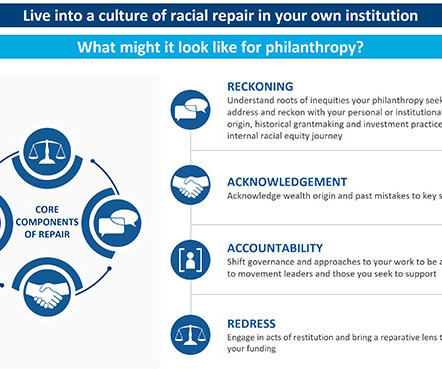Why Reparations Can Counter the Legacy of a 50-Year “War on Drugs”
NonProfit Quarterly
FEBRUARY 21, 2024
Co-produced with the Movement for Black Lives (M4BL), this series will examine the many ways that M4BL and its allies are seeking to address the economic policy challenges that lie at the intersection of the struggle for racial and economic justice. Of course, the drug war is not the only reason why reparations are required.





















Let's personalize your content